第33章 II(17)
I first saw M. Breschet's name mentioned in that Journal Concerning Amussat, my correspondent writes, that he was informed by Madame Hahnemann, who converses in French more readily than her husband, and therefore often speaks for him, that "he was not a physician, neither Homoeopathist nor Allopathist, but that he was the surgeon of their own establishment; that is, performed as a surgeon all the operations they had occasion for in their practice."
I regret not having made any inquiries as to Marjolin, who, I doubt not, would strike his ponderous snuff-box until it resounded like the Grecian horse, at hearing such a doctrine associated with his respectable name. I was not aware, when writing to Paris, that this worthy Professor, whose lectures I long attended, was included in these audacious claims; but after the specimens I have given of the accuracy of the foreign correspondence of the "Homoeopathic Examiner," any further information I might obtain would seem so superfluous as hardly to be worth the postage.
Homoeopathy may be said, then, to be in a sufficiently miserable condition in Paris. Yet there lives, and there has lived for years, the illustrious Samuel Hahnemann, who himself assured my correspondent that no place offered the advantages of Paris in its investigation, by reason of the attention there paid to it.
In England, it appears by the statement of Dr. Curie in October, 1839, about eight years after its introduction into the country, that there were eighteen Homoeopathic physicians in the United Kingdom, of whom only three were to be found out of London, and that many of these practised Homoeopathy in secret.
It will be seen, therefore, that, according to the recent statement of one of its leading English advocates, Homoeopathy had obtained not quite half as many practical disciples in England as Perkinism could show for itself in a somewhat less period from the time of its first promulgation in that country.
Dr. Curie's letter, dated London, October 30, 1839, says there is "one in Dublin, Dr. Luther; at Glasgow, Dr. Scott." The "distinguished" Chrysaora writes from Paris, dating October 20, 1839, "On the other hand, Homoeopathy is commencing to make an inroad into England by the way of Ireland. At Dublin, distinguished physicians have already embraced the new system, and a great part of the nobility and gentry of that city have emancipated themselves from the English fashion and professional authority."
But the Marquis of Anglesea and Sir Edward Lytton Bulwer patronize Homoeopathy; the Queen Dowager Adelaide has been treated by a Homoeopathic physician. "Jarley is the delight of the nobility and gentry." "The Royal Family are the patrons of Jarley."
Let me ask if a Marquis and a Knight are better than two Lords, and if the Dowager of Royalty is better than Royalty itself, all of which illustrious dignities were claimed in behalf of Benjamin Douglass Perkins?
But if the balance is thought too evenly suspended in this case, another instance can be given in which the evidence of British noblemen and their ladies is shown to be as valuable in establishing the character of a medical man or doctrine, as would be the testimony of the Marquis of Waterford concerning the present condition and prospects of missionary enterprise. I have before me an octavo volume of more than four hundred pages, in which, among much similar matter, I find highly commendatory letters from the Marchioness of Ormond, Lady Harriet Kavanagh, the Countess of Buckinghamshire, the Right Hon. Viscount Ingestre, M. P., and the Most Noble, the Marquis of Sligo,--all addressed to "John St. John Long, Esq," a wretched charlatan, twice tried for, and once convicted of, manslaughter at the Old Bailey.
This poor creature, too, like all of his tribe, speaks of the medical profession as a great confederation of bigoted monopolists. He, too, says that "If an innovator should appear, holding out hope to those in despair, and curing disorders which the faculty have recorded as irremediable, he is at once, and without inquiry, denounced as an empiric and an impostor." He, too, cites the inevitable names of Galileo and Harvey, and refers to the feelings excited by the great discovery of Jenner. From the treatment of the great astronomer who was visited with the punishment of other heretics by the ecclesiastical authorities of a Catholic country some centuries since, there is no very direct inference to be drawn to the medical profession of the present time. His name should be babbled no longer, after having been placarded for the hundredth time in the pages of St. John Long. But if we are doomed to see constant reference to the names of Harvey and Jenner in every worthless pamphlet containing the prospectus of some new trick upon the public, let us, once for all, stare the facts in the face, and see how the discoveries of these great men were actually received by the medical profession.
In 1628, Harvey published his first work upon the circulation. His doctrines were a complete revolution of the prevailing opinions of all antiquity. They immediately found both champions and opponents; of which last, one only, Riolanus, seemed to Harvey worthy of an answer, on account of his "rank, fame, and learning." Controversy in science, as in religion, was not, in those days, carried on with all the courtesy which our present habits demand, and it is possible that some hard words may have been applied to Harvey, as it is very certain that he used the most contemptuous expressions towards others.